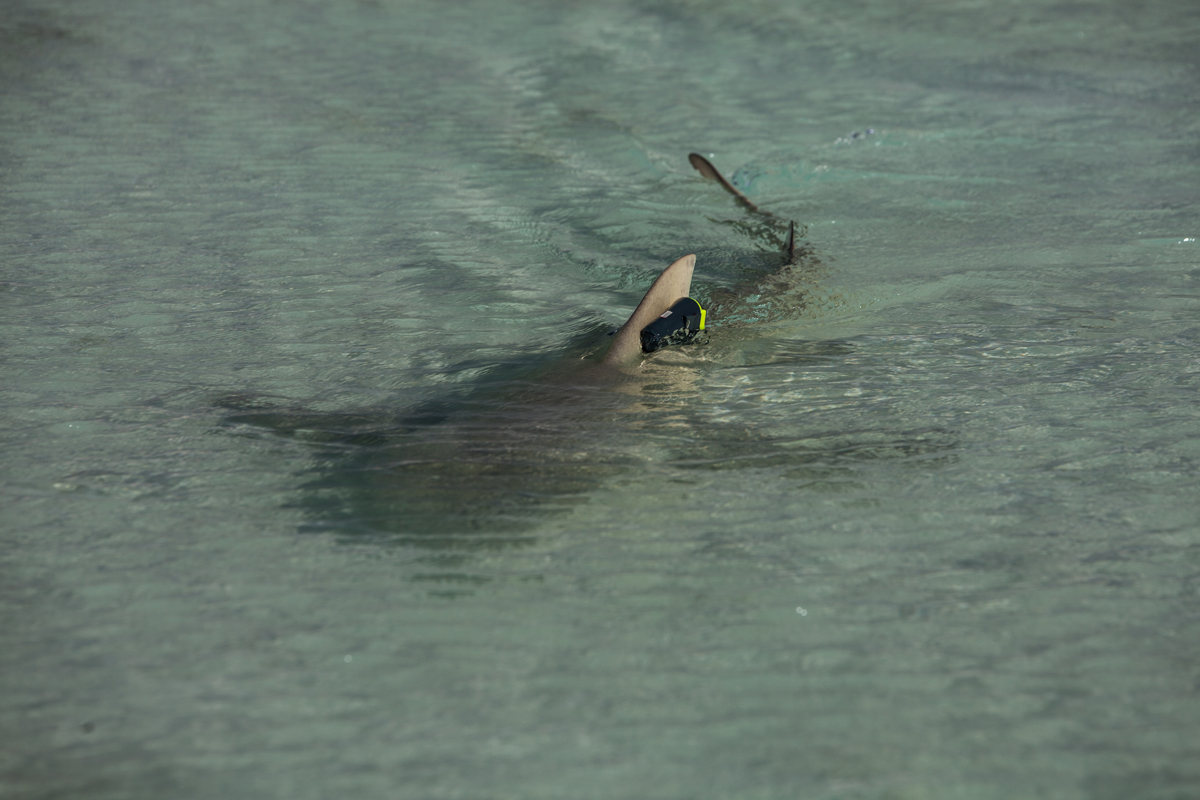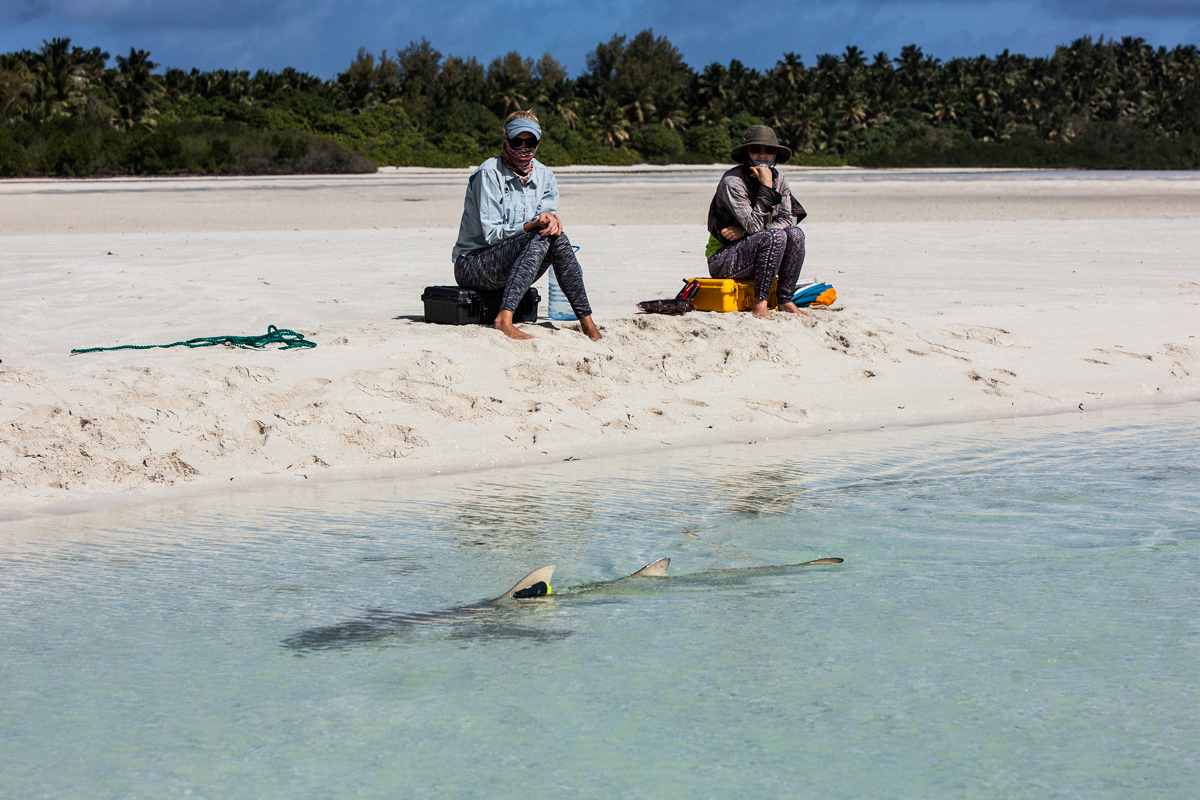Activity Trackers for Sharks
Discovering the Secret Lives of Sharks
What if researchers could put the same sort of activity trackers used by health conscious humans on sharks? Imagine what we could learn about the daily activity, behavior, habits and, ultimately, the secret lives of top predators in the ocean. Traditionally, our understanding of many a species of animals remains limited to what we can visually observe or to basic information on geographic location. Indeed, this is especially true for sharks, where direct observation for more than a few hours is nearly impossible.

A stingray’s story St Joseph Atoll is a special place in the remote Indian Ocean. It’s home to numerous stingray species, including cowtail, mangrove whiptail and porcupine rays. Chantel is investigating how many of these animals there are, what they eat, where they live and how they move.
Enter Accelerometer Data Logger (ADL) tags, or simply, activity tags. The sophisticated technology in these tags amounts to the equivalent of modern activity trackers, such as Fitbits, for animals. Each data point is shaped from activity measurements taken from the combination of an accelerometer, gyroscope and magnetometer within the unit. Essentially, the tags provide a previously unattainable level of understanding with respect to the daily activity of nearly anything one attaches them to.

Each data point from an activity tag is shaped from activity measurements taken from the combination of an accelerometer, gyroscope and magnetometer within the unit. Photo by Ryan Daly | (c) Save Our Seas Foundation
Activity trackers on Sicklefin Lemon Sharks
Recently, we’ve started a study that uses these activity tags to investigate the behavioral patterns of sicklefin lemon sharks (Negaprion acutidens) at St Joseph Atoll in the Seychelles. The goal of the study is to expand our knowledge of how these sharks function and behave over time and space. Thus, the study aims not only to investigate how these sharks interact with their environment but also to examine how this relates to their basic energetic dynamics.
Follow the progress of this exciting study in a series of four blogs, as we gather baseline data and retrieve tags from free-ranging sharks. At the same time, we hope to show the efficiency gains this sort of technology lends to a field study. Moreover, this study will consider how extreme environmental conditions affect lemon shark behavior and which areas within the St Joseph Atoll are important for various lemon shark behaviors, such as foraging, resting or even mating.
